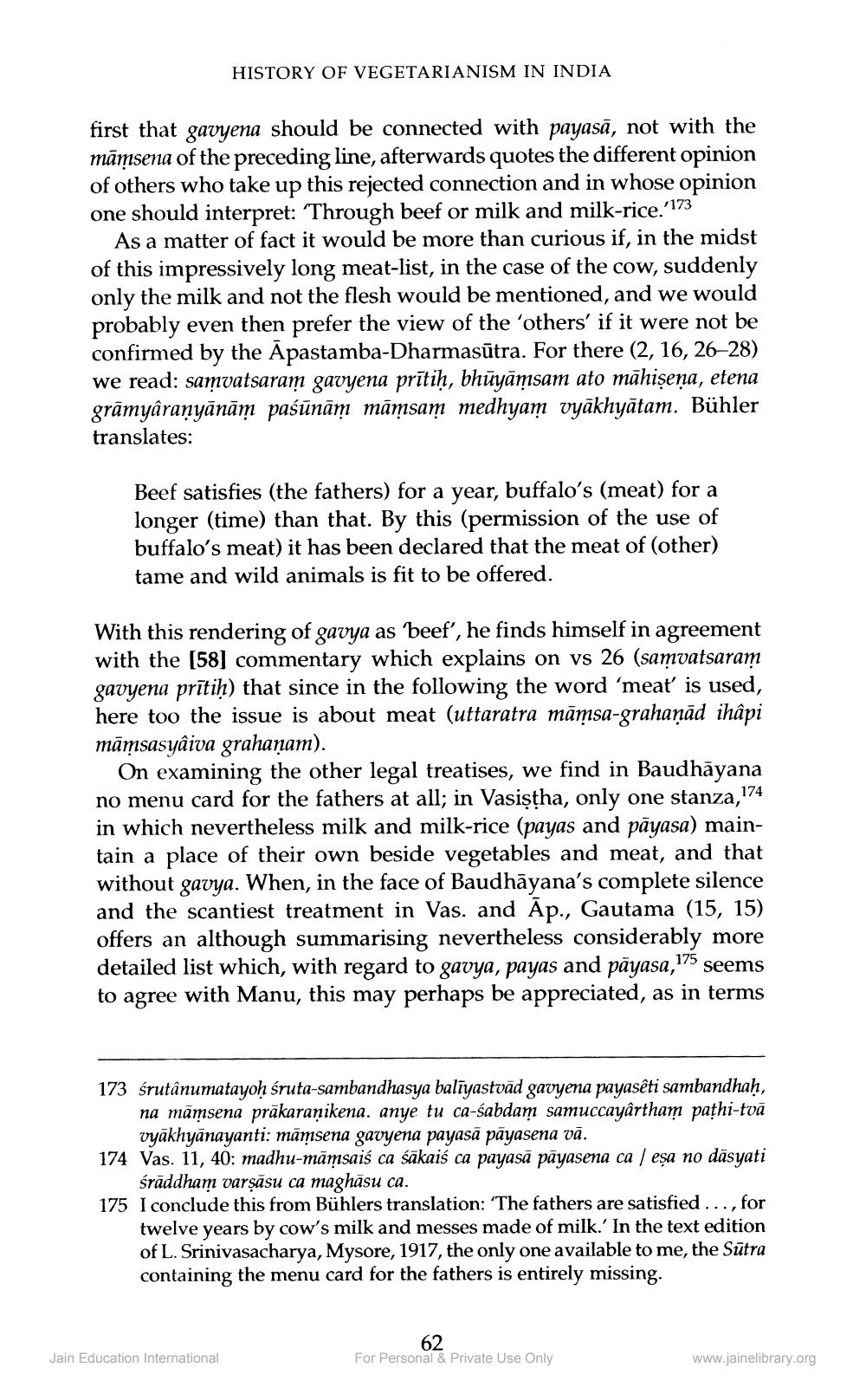________________
HISTORY OF VEGETARIANISM IN INDIA
first that gavyena should be connected with payasā, not with the māmsena of the preceding line, afterwards quotes the different opinion of others who take up this rejected connection and in whose opinion one should interpret: Through beef or milk and milk-rice.'173
As a matter of fact it would be more than curious if, in the midst of this impressively long meat-list, in the case of the cow, suddenly only the milk and not the flesh would be mentioned, and we would probably even then prefer the view of the 'others' if it were not be confirmed by the Āpastamba-Dharmasūtra. For there (2, 16, 26-28) we read: samvatsaram gavyena prītiḥ, bhūyāmsam ato māhisena, etena grāmyâraṇyānām paśūnām māņsam medhyam vyākhyātam. Bühler translates:
Beef satisfies (the fathers) for a year, buffalo's (meat) for a longer (time) than that. By this (permission of the use of buffalo's meat) it has been declared that the meat of (other) tame and wild animals is fit to be offered.
With this rendering of gavya as beef', he finds himself in agreement with the [58] commentary which explains on vs 26 (samvatsaram gavyena prītiḥ) that since in the following the word 'meat is used, here too the issue is about meat (uttaratra māņsa-grahaņād ihâpi māmsasyâiva grahaņam).
On examining the other legal treatises, we find in Baudhāyana no menu card for the fathers at all; in Vasiştha, only one stanza,174 in which nevertheless milk and milk-rice (payas and pāyasa) maintain a place of their own beside vegetables and meat, and that without gavya. When, in the face of Baudhāyana's complete silence and the scantiest treatment in Vas. and Ap., Gautama (15, 15) offers an although summarising nevertheless considerably more detailed list which, with regard to gavya, payas and pāyasa, 175 seems to agree with Manu, this may perhaps be appreciated, as in terms
173 śrutânumatayoḥ śruta-sambandhasya balīyastvād gavyena payaseti sambandhaḥ,
na māmsena prākaraņikena. anye tu ca-śabdam samuccayârtham pathi-tvā
vyākhyānayanti: māmsena gavyena payasā pāyasena vā. 174 Vas. 11, 40: madhu-māmsais ca śākais ca payasā pāyasena ca / eșa no dāsyati
śrāddham varsāsu ca maghasu ca. 175 I conclude this from Bühlers translation: The fathers are satisfied ..., for
twelve years by cow's milk and messes made of milk.' In the text edition of L. Srinivasacharya, Mysore, 1917, the only one available to me, the Sūtra containing the menu card for the fathers is entirely missing.
62
Jain Education International
For Personal & Private Use Only
www.jainelibrary.org




